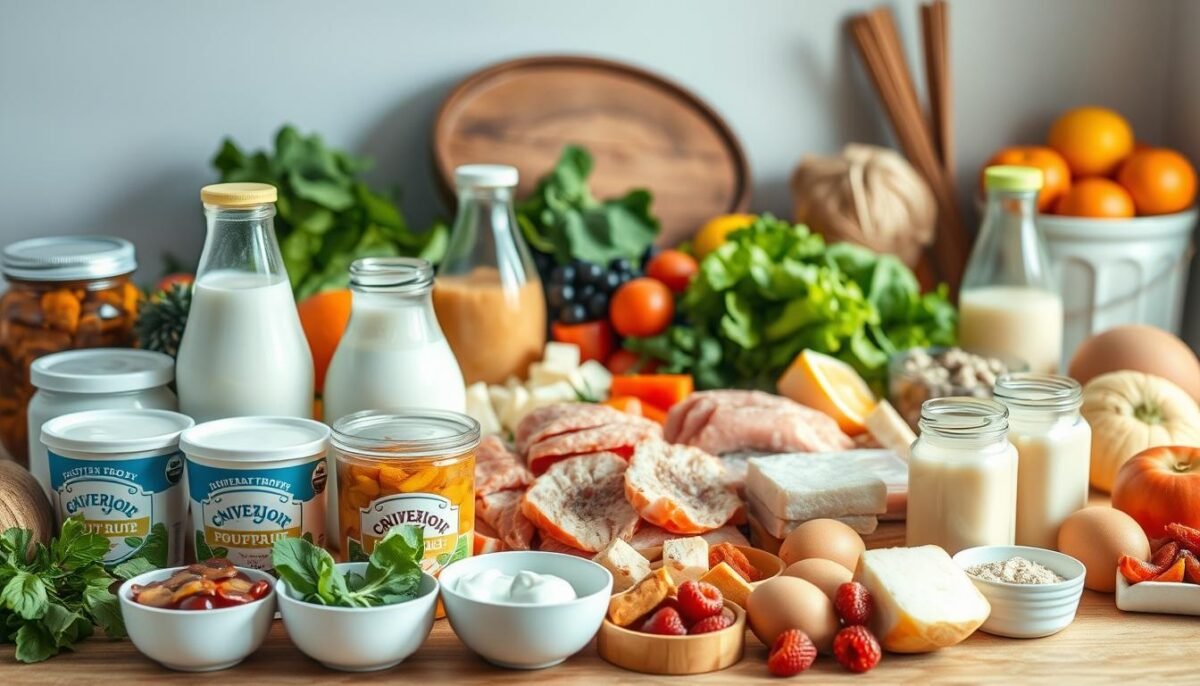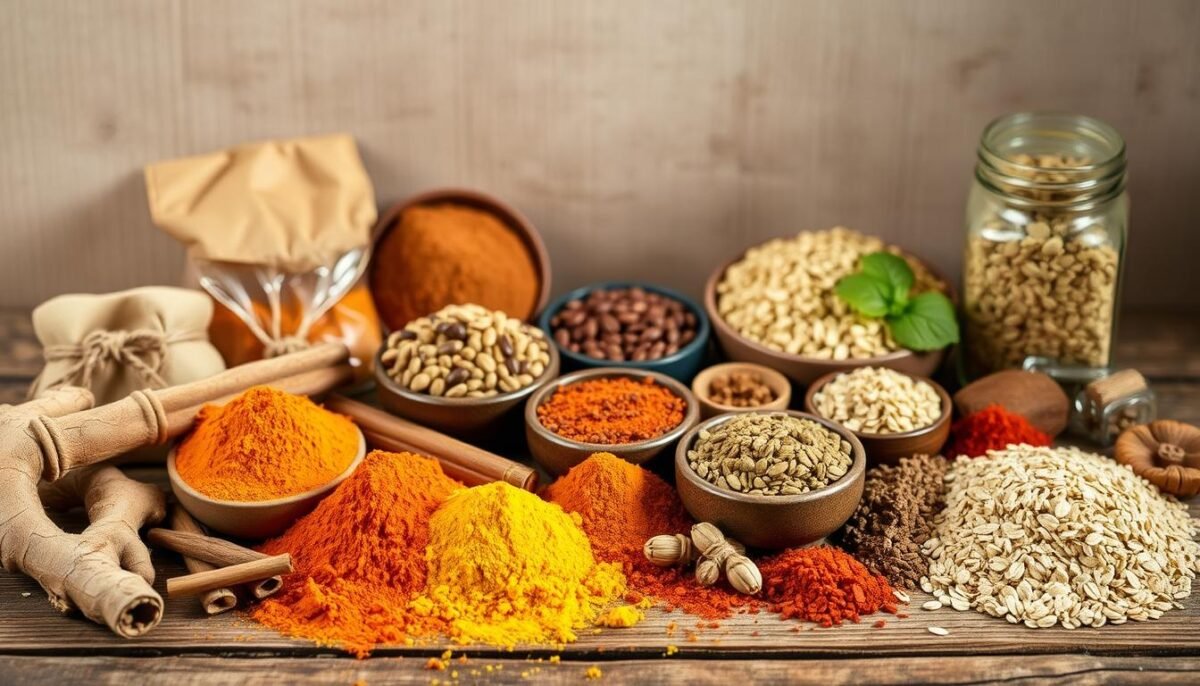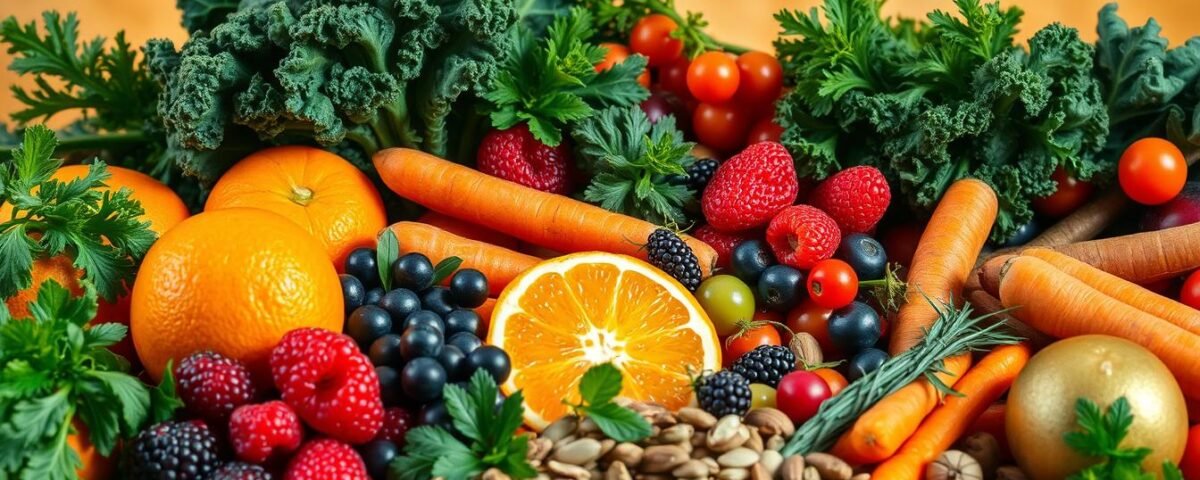
Espresso at Home: 4 Methods That Don’t Require an Expensive Machine
April 19, 2025
Why Your Immune System Is Weak—and How to Naturally Strengthen It
April 20, 2025I’ll never forget the year my entire family caught the flu during the holidays. As snow piled outside, we shuffled between beds and thermometers, wishing we’d prioritized our health sooner. That experience taught me something: what we eat isn’t just fuel—it’s armor for our body when temperatures drop.
Last December, a friend shared how swapping processed snacks for roasted sweet potatoes and ginger tea transformed her season. She avoided the office cold that took down half her team. Stories like hers aren’t luck—they’re proof that nutrition matters when our system faces extra stress.
Shorter days mean less sunlight, which impacts vitamin D levels. Combine that with dry indoor air, and it’s no surprise colds spread faster. But experts like Dr. William Schaffner agree: simple food choices can build resilience. Fermented veggies, citrus fruits, and even garlic-packed soups become daily allies.
Personally, I start mornings with warm lemon water and prioritize meals rich in color. It’s not about perfection—just consistency. Let’s explore how these everyday ingredients keep you stronger, even when everyone else is sneezing.
Key Takeaways
- Cold months demand nutrient-rich meals to support your body’s defenses
- Reduced sunlight lowers vitamin D, increasing vulnerability to seasonal bugs
- Root vegetables, citrus, and fermented items are science-backed choices
- Hydration and warm drinks like herbal tea aid overall wellness
- Experts recommend daily intake for sustained protection
Embracing Cold-Weather Nutrition for a Strong Immune System
I learned the hard way how quickly a sniffle can turn into a week-long battle. Chilly air and crowded spaces create the perfect storm for viruses to thrive. Dry heating systems zap moisture from our nasal passages, making it easier for germs to stick around.
Why Cold Months Challenge Our Defenses
Research shows respiratory infections spike by 40% in cooler months. “Our noses become less effective at trapping invaders when temperatures drop,” explains Dr. Schaffner from Vanderbilt University. Indoor gatherings don’t help—close contact spreads germs faster than a sneeze in an elevator.
Eating to Outsmart Seasonal Threats
My kitchen became my first line of defense last year. I focused on meals packed with color and variety. Here’s what science says works best:
| Nutrient | Key Sources | Benefits |
|---|---|---|
| Vitamin C | Bell peppers, oranges | Supports white blood cell function |
| Zinc | Pumpkin seeds, lentils | Shortens cold duration |
| Antioxidants | Berries, dark greens | Reduces inflammation |
The CDC confirms that proper vitamin D intake can cut flu risk by 42%. I mix salmon into weekly meals and take walks midday for natural sunlight. Even simple choices matter—steaming mugs of ginger tea became my afternoon ritual instead of sugary drinks.
Remember that time I skipped veggies for a week? My energy plummeted. Now I keep chopped kale and roasted squash ready for quick stir-fries. It’s not about drastic changes—just smart swaps that add up.
Winter immune boosting foods: Why I Rely on Them Daily
Three years ago, I discovered my kitchen could be a shield against seasonal sniffles. Now, my cutting board stays busy with colorful ingredients that work like daily armor. The difference? I stopped chasing quick fixes and focused on what lands on my plate.

How Specific Nutrients Protect Me During Winter
Sweet potatoes became my go-to side dish after learning about their beta-carotene content. This nutrient converts to vitamin A, which keeps mucous membranes healthy – our first defense against airborne germs. Combined with garlic-roasted Brussels sprouts, it’s a tasty way to support my body’s natural guards.
| Food | Key Nutrient | Role in Defense |
|---|---|---|
| Spinach | Folate | Helps repair DNA in cells |
| Almonds | Vitamin E | Protects cell membranes |
| Yogurt | Probiotics | Supports gut-barrier function |
I pair these with lean proteins like turkey or tofu. Dr. Emily Parker from Johns Hopkins notes: “Protein provides amino acids essential for antibody production.” Last January, this combo helped me power through a project while coworkers called in sick.
Mornings start with oatmeal topped with sunflower seeds for zinc. Afternoons feature citrus slices – their vitamin C keeps white blood cells active. This diet isn’t restrictive, just intentional. The result? More energy for snowy walks and fewer days under blankets.
My Favorite Immune-Boosting Vegetables and Fruits
Last January, my colorful plate became my secret weapon against seasonal sniffles. I realized nature’s brightest offerings do more than please the eye—they’re packed with tools our bodies need to thrive. Let me share the staples that never leave my grocery list.
Nourishing Vegetables and Leafy Greens
Kale and spinach form the base of my daily meals. Their deep green hues signal high folate content, which a 2022 Nutrition Journal study links to stronger cellular repair. I roast sweet potatoes weekly—their orange flesh delivers beta-carotene that converts to vitamin A, crucial for maintaining healthy mucous membranes.
| Vegetable | Key Nutrients | Health Benefits |
|---|---|---|
| Spinach | Vitamin K, Iron | Supports blood health |
| Bell peppers | Vitamin C | Enhances white blood cell activity |
| Beets | Nitrates | Improves oxygen circulation |
Refreshing Citrus and Berry Options
My fruit bowl always holds lemons and organic apples. Citrus peels contain limonene, a compound shown in Food Chemistry research to activate protective enzymes. Frozen blueberries become smoothie stars—their anthocyanins combat oxidative stress better than many supplements.
Weekend meal prep includes zesty salads with lemon-tahini dressing. The acidity helps absorb iron from leafy greens, doubling the benefits. For busy days, I toss berries into oatmeal or yogurt. These simple swaps keep my diet vibrant without extra effort.
Combining these ingredients creates meals that support both physical stamina and mental clarity. When my plate looks like a rainbow, I know I’m giving my health the attention it deserves.
Delicious Protein, Probiotics, and Gut-Healthy Choices
A few winters back, I realized my gut was the unsung hero of my health journey. After battling constant fatigue, I discovered how protein choices and fermented favorites could transform my energy levels. Now, my meals prioritize both flavor and function.

Clean Proteins and Dairy Delights
Wild-caught salmon became my weekly staple after learning its omega-3s support immune response. Paired with organic tofu or roasted turkey, these proteins deliver B vitamins that keep my body‘s defenses alert. Even my morning snack changed—Greek yogurt with chia seeds now replaces sugary cereals.
Nutritionist Dr. Lisa Yang confirms: “Zinc from poultry and legumes helps white blood cells fight invaders effectively.” I keep cooked chicken breast handy for quick salads or wraps. These swaps make my diet feel luxurious, not restrictive.
The Power of Fermented Foods for Gut Health
My fridge always stocks kimchi and kefir. Research shows 70% of our immune system resides in the gut—fermented foods feed those beneficial bacteria. A 2023 Gut Microbes journal study found daily probiotics can enhance system function by 18%.
I add sauerkraut to eggs and sip kombucha instead of soda. For beginners, I suggest starting small: mix plain yogurt into smoothies or top soups with fermented veggies. The tangy flavors grew on me faster than I expected!
Combining these choices transformed more than my plate. Better digestion means sustained energy for snowshoeing and holiday gatherings. When my gut thrives, my whole system operates at its best.
Incorporating Nutritious Spices & Budget-Friendly Staples
I used to think spices were just for flavor until a chilly afternoon changed my perspective. While simmering turmeric-laced soup during a snowstorm, I noticed fewer seasonal sniffles than usual. That’s when I realized my spice rack held more power than I’d imagined.

Warming Spices to Boost Antioxidants
My morning oatmeal now gets a dash of cinnamon, while stir-fries feature ginger and cayenne. Research from the Journal of Nutritional Science shows these spices increase antioxidant levels by 23% compared to bland meals. Turmeric became my go-to—its curcumin content fights inflammation like nature’s aspirin.
| Spice | Active Compound | Key Benefit |
|---|---|---|
| Ginger | Gingerol | Reduces muscle soreness |
| Cinnamon | Cinnamaldehyde | Balances blood sugar |
| Cayenne | Capsaicin | Supports circulation |
Simple, Affordable Foods That Pack a Nutritional Punch
Budget-friendly ingredients form 80% of my grocery list. Lentils simmer into hearty stews, while cabbage adds crunch to salads and slaws. Tinned tomatoes became my secret weapon—their lycopene content actually increases during canning.
| Staple | Key Nutrients | Weekly Uses |
|---|---|---|
| Rolled oats | Fiber, magnesium | Breakfast bowls, baking |
| Red lentils | Protein, iron | Soups, veggie burgers |
| Green cabbage | Vitamin K, folate | Stir-fries, fermented kraut |
I batch-cook lentils every Sunday and freeze portions. This strategy saves money and time—essential for busy weeknights. As Dr. Maya Feller notes: “Affordable ingredients can deliver premium benefits when used creatively.” My favorite recipes? Spiced lentil tacos and oat-based energy bites that keep my diet both nourishing and wallet-friendly.
Conclusion
Two seasons ago, my morning routine shifted from coffee to citrus-infused water, sparking a health transformation. Prioritizing vitamin-rich meals and colorful recipes became my strategy against seasonal threats. The six food groups we’ve explored—vegetables, fruits, proteins, probiotics, spices, and budget staples—work together like a well-trained team for your body.
Research from Johns Hopkins reinforces this approach: balanced nutrition can enhance immune response by 30% during colder months. I keep meals simple—roasted veggies with garlic, lentil soups with turmeric, and hydration with lemon slices in water. These choices build resilience without complexity.
My kitchen counter always holds a bowl of clementines and prepped greens. Small habits, like adding fermented foods to salads or sipping herbal blends, make consistency effortless. Dr. Schaffner’s advice rings true: “Daily nutrients matter more than occasional superfoods.”
Adopt these practices as your seasonal rhythm. When frost nips at the windows, your plate becomes the first defense. Nourish wisely, and let every bite fortify your health journey.
FAQ
Why do I need to adjust my diet during colder months?
Cold weather can stress our bodies, making it harder to fight off germs. I focus on nutrient-dense meals with vitamins like C and D, zinc, and antioxidants to support my defenses naturally.
What’s the easiest way to add more leafy greens to my meals?
I toss spinach or kale into soups, smoothies, or omelets. They’re rich in vitamin A and fiber, which help maintain healthy cells and gut function—key for staying resilient.
Are citrus fruits really that important for immunity?
Absolutely! Oranges, grapefruits, and lemons are my go-to sources of vitamin C. This antioxidant helps white blood cells work efficiently, which I’ve noticed keeps me feeling stronger during flu season.
How do fermented foods like yogurt help my gut health?
Yogurt with live cultures introduces good bacteria to my gut. Since 70% of our immune cells reside there, a balanced microbiome means better protection against seasonal bugs.
Can spices like turmeric actually make a difference?
Yes! I add turmeric to teas or soups for its curcumin content—a potent anti-inflammatory. Paired with black pepper, it boosts absorption and helps calm winter-related inflammation.
What affordable staples do you recommend for tight budgets?
Oats, sweet potatoes, and canned beans are my favorites. They’re packed with fiber, beta-carotene, and protein—nutrients that keep my energy up without breaking the bank.
Does hydration matter as much in winter?
I drink herbal teas and warm water with lemon daily. Staying hydrated thins mucus and helps my body flush toxins, which is just as crucial when it’s cold outside.



